by Leanne Ogasawara

I once lived in a town famous for plum blossoms.
To get there, you have to board an express train out of the busiest train station in the world. The view out the window won’t impress you all that much either; as Tokyo sprawls endlessly gray outward from the center. After about 30 minutes, you will notice the train crossing a bridge over a river (the unmistakable rhythmic sound will alert you even if you’ve closed your eyes). This is your cue to get ready to hop off at the next station; for there, on the western shore of the Tama River, you will need to change to a local train.
And from there, it is just one more stop.
Mogusaen. Its name means, “garden of a hundred grasses” (百草園). A sleepy little neighborhood not even large enough to merit an express stop on the Keio Line, Mogusaen would make the TV news every February, when something incredible happened. How to describe those fragile-looking plum flowers blooming defiantly in the snow? Especially at night, the pale flowers on frozen trees branches would shimmer in the moonlight. It was enchanting.
So splendid were the plum blossoms of Mogusean that blossom-viewers would travel from far and wide just to see them every year. In fact, such was the rush of people that the entire Keio Line train network would have to be reorganized to turn Mogusaen into an express stop for the several weeks when the plum trees were in bloom. During this brief period, huge crowds used to stream in on the express train to go plum blossom-viewing.
But all too soon, the flowers would fade– and Mogusaen reverted back to its ordinary incarnation of sleepy, little local stop again. Even now, I still can’t help but smile when I think of how those flowers commanded the complete rescheduling of one of Tokyo’s busiest train lines! Read more »


 Our uniform was a shirt tucked into jeans. Sandi stretched the smallest size over well-proportioned breasts, her black bra peeking through a run of buttons. Mine hung long in the sleeves and fell over my waist.
Our uniform was a shirt tucked into jeans. Sandi stretched the smallest size over well-proportioned breasts, her black bra peeking through a run of buttons. Mine hung long in the sleeves and fell over my waist.

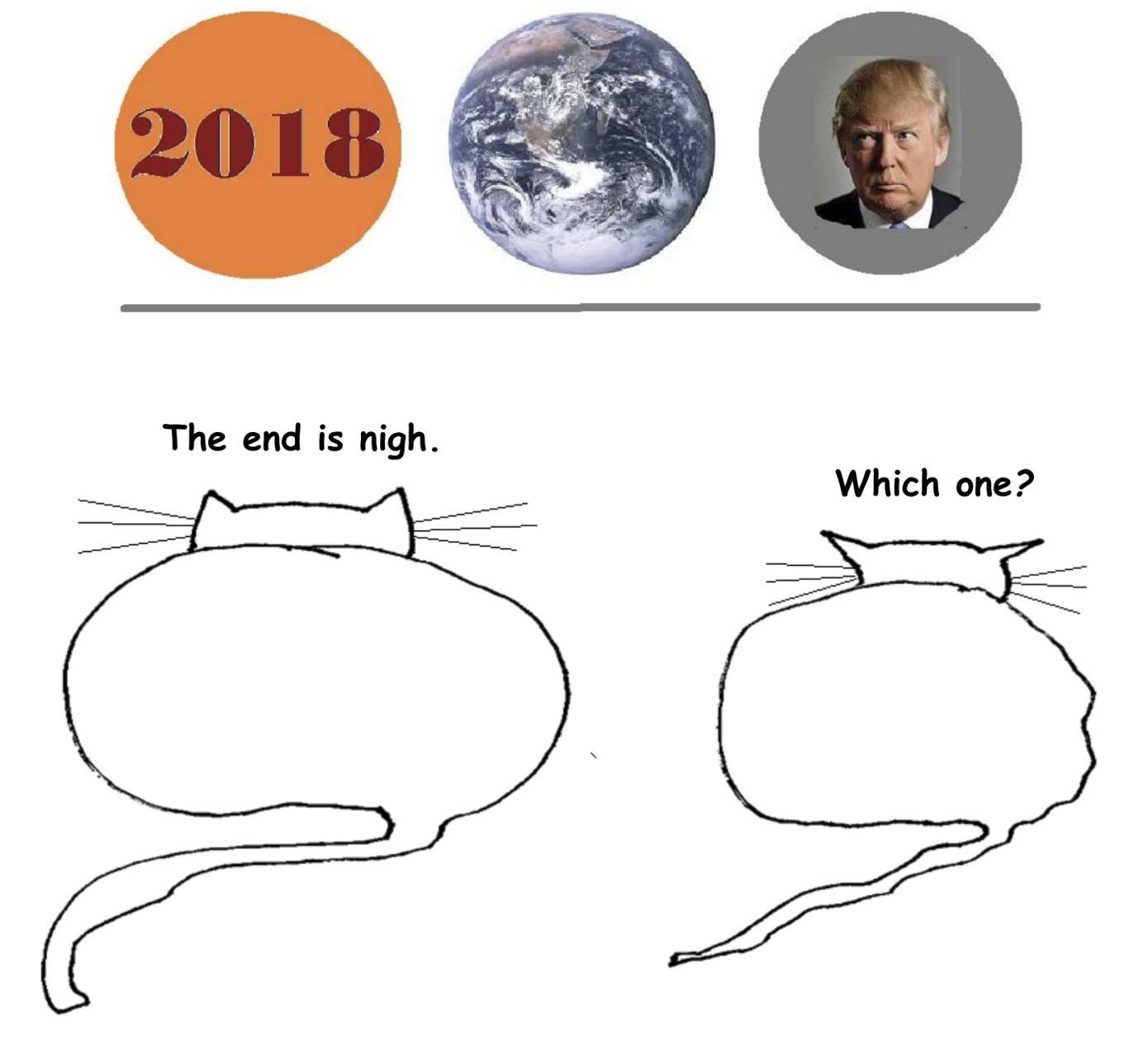
 In the middle of the night of March 24, 1992, a pressure seal failed in the number three unit of the Leningradskaya Nuclear Power Plant at Sosnoviy Bor, Russia, releasing radioactive gases. With a friend, I had train tickets from Tallinn, in newly independent Estonia, to St. Petersburg the next day. That would take us within twenty kilometers of the plant. The legacy of Soviet management at Chernobyl a few years before set up a fraught decision whether or not to take the train.
In the middle of the night of March 24, 1992, a pressure seal failed in the number three unit of the Leningradskaya Nuclear Power Plant at Sosnoviy Bor, Russia, releasing radioactive gases. With a friend, I had train tickets from Tallinn, in newly independent Estonia, to St. Petersburg the next day. That would take us within twenty kilometers of the plant. The legacy of Soviet management at Chernobyl a few years before set up a fraught decision whether or not to take the train. It’s been a while since I posted on this issue, and I’ve already said most of what I intended to say about it, but things seem to be coming to a head in my own state, and I thought I’d report on that, including a couple of weird local wrinkles (the Garden State is a strange place). Three weeks ago, after months of missed deadlines, an adult-use marijuana legalization bill was approved by a joint (Assembly/Senate, that is, not … never mind) committee of the legislature, and may (note: may) be voted on later this year. If it is passed and signed into law by the governor – neither of which is a given – New Jersey would be the eleventh state to legalize adult use, and the second to do so by legislative action. (Washington and Colorado in 2012, Alaska and Oregon in 2014, California, Massachusetts, Maine, and Nevada in 2016, and Michigan in 2018 did so by voter referendum; Vermont did so by legislative action (in 2017, I think), although that state’s bill did not set up a legal market, which means that while it is legal to grow marijuana in one’s basement there, it remains illegal to buy seeds to do so.)
It’s been a while since I posted on this issue, and I’ve already said most of what I intended to say about it, but things seem to be coming to a head in my own state, and I thought I’d report on that, including a couple of weird local wrinkles (the Garden State is a strange place). Three weeks ago, after months of missed deadlines, an adult-use marijuana legalization bill was approved by a joint (Assembly/Senate, that is, not … never mind) committee of the legislature, and may (note: may) be voted on later this year. If it is passed and signed into law by the governor – neither of which is a given – New Jersey would be the eleventh state to legalize adult use, and the second to do so by legislative action. (Washington and Colorado in 2012, Alaska and Oregon in 2014, California, Massachusetts, Maine, and Nevada in 2016, and Michigan in 2018 did so by voter referendum; Vermont did so by legislative action (in 2017, I think), although that state’s bill did not set up a legal market, which means that while it is legal to grow marijuana in one’s basement there, it remains illegal to buy seeds to do so.)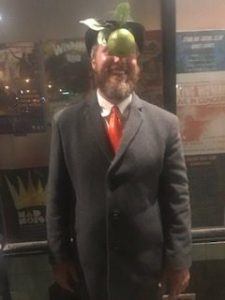 I met Rene Magritte a few weeks ago at the Starline Social Club in Oakland. A surprisingly jolly fellow, it turns out he’s working these days as a pedicab driver in San Francisco. Surrealism isn’t my jam, but when he offered me a pickup the next morning at the BART and mushrooms and tickets for two to the retrospective of his work at SFMoMA, well—I had to accept.
I met Rene Magritte a few weeks ago at the Starline Social Club in Oakland. A surprisingly jolly fellow, it turns out he’s working these days as a pedicab driver in San Francisco. Surrealism isn’t my jam, but when he offered me a pickup the next morning at the BART and mushrooms and tickets for two to the retrospective of his work at SFMoMA, well—I had to accept.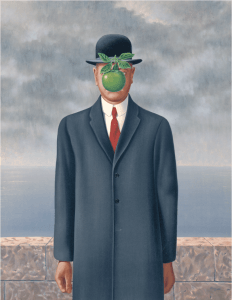
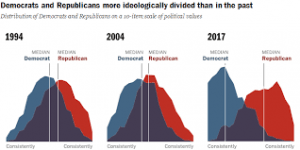
 Magnus Carlsen and Fabiano Caruana faced off for the World Chess Championship over three weeks London. I’d been looking forward to the match all year, and following the progress of the two players towards it. This piece looks at the two players and the situation before the match, gives an account of the Championship games, and concludes with some reflections on the significance of the match for the participants, and for the sport.
Magnus Carlsen and Fabiano Caruana faced off for the World Chess Championship over three weeks London. I’d been looking forward to the match all year, and following the progress of the two players towards it. This piece looks at the two players and the situation before the match, gives an account of the Championship games, and concludes with some reflections on the significance of the match for the participants, and for the sport.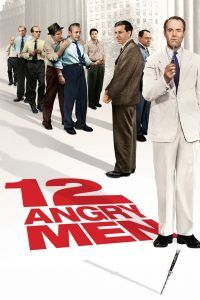 I recently rewatched “12 Angry Men” with The Philosophy Club at the University of Iowa as part of their “Owl of Minerva” film series. The 1957 film has the late, great Henry Fonda as the lone holdout on a jury ready to convict a poor, abused 18-year-old boy for allegedly stabbing his father to death. Over one long, tense evening (shown in something close to real-time), juror #8 – none of the jurors are identified by name, only number – forces the rest of the jury to methodically reexamined the evidence. It’s not a courtroom drama, it’s a jury-room drama in which only 3 of 1:36 minutes of running time take place outside the sweaty, claustrophobic jury room. The film is intense, moving, and effective. Afterwards, I made the following remarks.
I recently rewatched “12 Angry Men” with The Philosophy Club at the University of Iowa as part of their “Owl of Minerva” film series. The 1957 film has the late, great Henry Fonda as the lone holdout on a jury ready to convict a poor, abused 18-year-old boy for allegedly stabbing his father to death. Over one long, tense evening (shown in something close to real-time), juror #8 – none of the jurors are identified by name, only number – forces the rest of the jury to methodically reexamined the evidence. It’s not a courtroom drama, it’s a jury-room drama in which only 3 of 1:36 minutes of running time take place outside the sweaty, claustrophobic jury room. The film is intense, moving, and effective. Afterwards, I made the following remarks.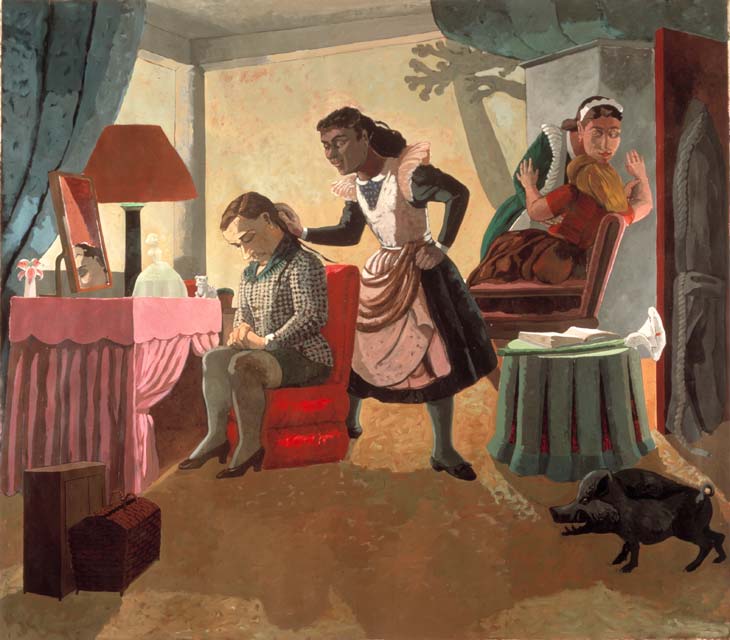


 It’s getting colder now in Beijing, and I can’t help but feel for the clothing left outside to dry. They had to hang through the night and on through the weak sunrise, doing their best to catch the wind before the temperature drops again. How do they feel being out there for passers-by to see, all exposed, caught up in the dust and very small toxic particles?
It’s getting colder now in Beijing, and I can’t help but feel for the clothing left outside to dry. They had to hang through the night and on through the weak sunrise, doing their best to catch the wind before the temperature drops again. How do they feel being out there for passers-by to see, all exposed, caught up in the dust and very small toxic particles? 
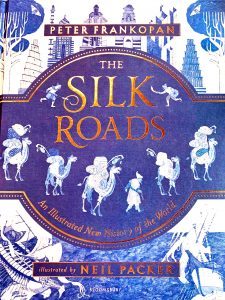 “You start with a scarf…each 90-by-90-centimeter silk carré, printed in Lyon on twill made from thread created by the label’s own silkworms, holds a story. Since 1937, almost 2,500 original artworks have been produced, such as a 19th-century street scene from Ruedu Faubourg St.-Honore, the company’s home since 1880. The flora and fauna of Texas. A beach in Spain’s Basque country” –- this is a fragment from an advertisement article for Hermès in this month’s issue of a luxury magazine. The article is called “The Silk Road.” Does it refer to the “Silk Road” in any way that justifies the title, beyond the allure of legend? No. Does it mention that the first scarves created for this very label, in 1937, were made with raw silk from China? No. Not necessary, not relevant to the target reader. In fact, the less we mention the “East” while trying to sell such luxury designer items, the better, aiming as we are for the rich collector, the global consumer of fashion (whether belonging to the East or West) willing to spend hundreds of dollars on a small square of silk, and more likely to associate such status symbols with Western Europe rather than with the “underdeveloped,” impoverished, overpopulated, conflict-ridden East.
“You start with a scarf…each 90-by-90-centimeter silk carré, printed in Lyon on twill made from thread created by the label’s own silkworms, holds a story. Since 1937, almost 2,500 original artworks have been produced, such as a 19th-century street scene from Ruedu Faubourg St.-Honore, the company’s home since 1880. The flora and fauna of Texas. A beach in Spain’s Basque country” –- this is a fragment from an advertisement article for Hermès in this month’s issue of a luxury magazine. The article is called “The Silk Road.” Does it refer to the “Silk Road” in any way that justifies the title, beyond the allure of legend? No. Does it mention that the first scarves created for this very label, in 1937, were made with raw silk from China? No. Not necessary, not relevant to the target reader. In fact, the less we mention the “East” while trying to sell such luxury designer items, the better, aiming as we are for the rich collector, the global consumer of fashion (whether belonging to the East or West) willing to spend hundreds of dollars on a small square of silk, and more likely to associate such status symbols with Western Europe rather than with the “underdeveloped,” impoverished, overpopulated, conflict-ridden East.